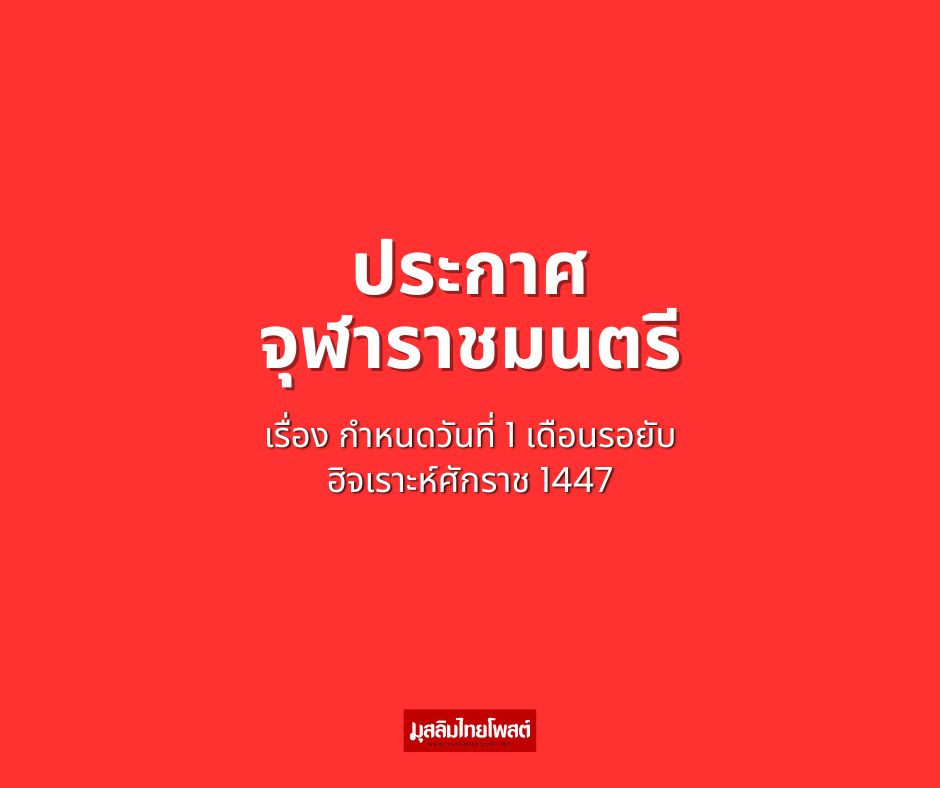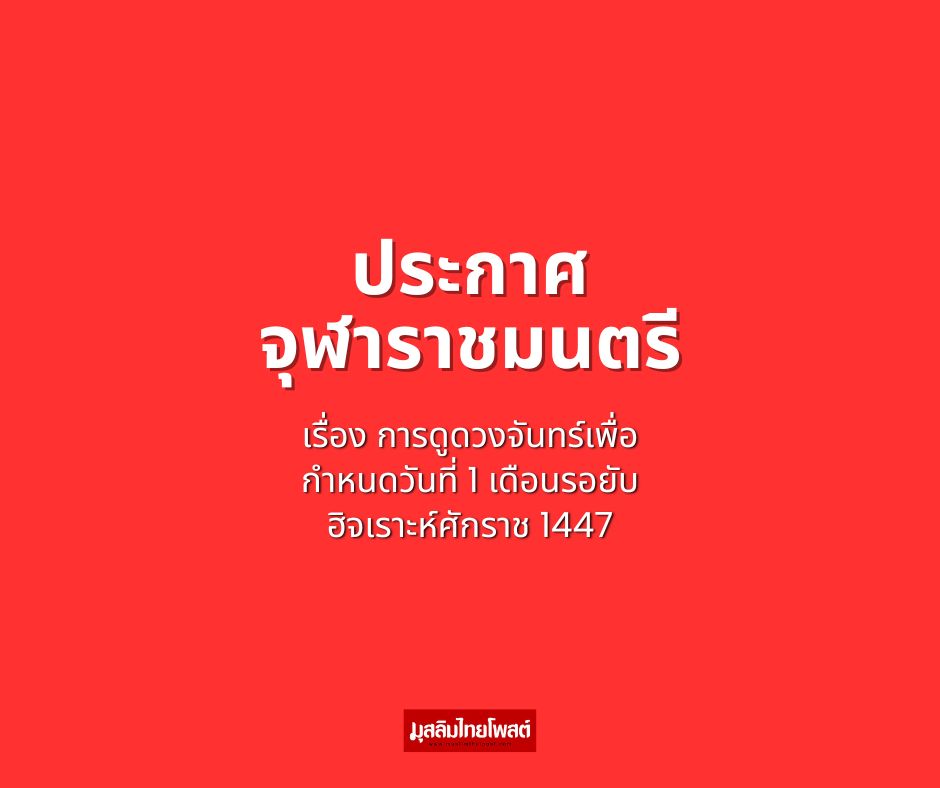นิยามศัพท์
นิยามศัพท์
กำลังแรงงานรวม หมายถึง บุคคลทุกคนที่มีอายุ 15 ปีขึ้นไปซึ่งในสัปดาห์แห่งการสำรวจเป็นผู้อยู่ในกำลังแรงงานปัจจุบัน (ผู้มีงานทำผู้ไม่มีงานทำ) หรือเป็นผู้ถูกจัดจำแนกอยู่ในประเภทกำลังแรงงานที่รอฤดูกาล
ผู้ไม่อยู่ในกำลังแรงงาน หมายถึง บุคคลที่ไม่เข้าข่ายคำนิยามของผู้มีงานทำผู้ไม่มีงานทำในสัปดาห์แห่งการสำรวจ หรือไม่เข้าข่ายคำนิยาม กำลังแรงงานที่รอฤดูกาล ซึ่งได้แก่
1. บุคคลซึ่งในระหว่างสัปดาห์แห่งการสำรวจมีอายุต่ำกว่า 15 ปี
2. บุคคลซึ่งในระหว่างสัปดาห์แห่งการสำรวจมีอายุ 15 ปี ขึ้นไป แต่ไม่ได้ทำงานและไม่พร้อมที่ จะทำงานเนื่องจากเป็นผู้ที่
2.1 ทำงานบ้าน
2.2 เรียนหนังสือ
2.3 ยังเด็กเกินไป (มีอายุน้อยกว่า 15 ปี) หรือชรามาก (มีอายุเกิน 60 ปี)
2.4 ไม่สามารถทำงานได้ เนื่องจากพิการทางร่างกายหรือจิตใจหรือเจ็บป่วยเรื้อรัง
2.5 ไม่สมัครใจทำงาน
2.6 ทำงานโดยไม่ได้รับค่าจ้าง ผลกำไร ส่วนแบ่ง หรือสิ่งตอบแทนอื่นๆ ให้แก่บุคคล ซึ่งมิได้เป็นสมาชิกในครัวเรือนเดียวกัน
2.7 ทำงานให้แก่องค์การ หรือสถาบันการกุศลต่าง ๆ โดยไม่ได้รับค่าจ้างผลกำไร ส่วนแบ่ง หรือสิ่งตอบแทนอย่างใด
2.8 ไม่พร้อมที่จะทำงาน เนื่องจากเหตุผลอื่น
กำลังแรงงานที่รอฤดูกาล หมายถึง ผู้ที่มีอายุ 15 ปีขึ้น ไปซึ่งในสัปดาห์แห่งการสำรวจเป็นผู้
ไม่เข้าข่ายคำนิยามของผู้มีงานทำหรือไม่มีงานทำแต่เป็นผู้รอฤดูกาลที่เหมาะสมเพื่อจะทำงานและเป็น
บุคคลที่ตามปกติจะทำงานโดยไม่ได้รับสิ่งตอบแทนในไร่นาเกษตรหรือธุรกิจซึ่งทำกิจกรรมตามฤดูกาล โดยมีหัวหน้าครัวเรือน หรือสมาชิกคนอื่นๆ ในครัวเรือนเป็นเจ้าของหรือผู้ดำเนินการ
ผู้มีงานทำ หมายถึง บุคคลที่มีอายุ 15 ปีขึ้นไป ซึ่งในสัปดาห์แห่งการสำรวจเป็นผู้ซึ่ง
1.ทำงานอย่างน้อย 1 ชั่วโมง โดยได้รับค่าจ้างเงินเดือนผลกำไรเงินปันผลหรือค่าตอบแทนที่มี
ลักษณะอย่างอื่นสำหรับผลงานที่ทำเป็นเงินสด หรือสิ่งของหรือ
2.ไม่ได้ทำงานเลยแต่ยังมีตำแหน่งหน้าที่การงานธุรกิจไร่นาเกษตรของตนเองได้
หยุดงานชั่วคราวเนื่องจากเจ็บป่วยหรือบาดเจ็บ หยุดพักผ่อน สถานที่ทำงานปิด ดินฟ้าอากาศ ไม่อำนวย นอกฤดูกาลหรือด้วยเหตุผลอื่นๆเช่นการปิดที่ทำงานชั่วคราวโดยไม่คำนึงว่าจะได้รับค่าจ้างจากนายจ้างในระหว่างที่ไม่ได้มาทำงานหรือไม่ก็ตาม จะต้องมีกำหนดว่าภายใน30วันนับจากวันที่สถานที่ทำงานปิดจะได้กลับมาทำงาน ณ สถานที่ทำงานนั้นอีก หรือ
3.ทำงานอย่างน้อย 1 ชั่วโมง โดยไม่ได้รับค่าจ้างในวิสาหกิจหรือไร่นาเกษตรของหัวหน้าครัวเรือน หรือของสมาชิกในครัวเรือน
ผู้ว่างงาน หมายถึง บุคคลที่มีอายุ 15 ปีขึ้นไป ซึ่งในสัปดาห์แห่งการสำรวจไม่ได้ทำงานใดๆ เลยแม้แต่ 1 ชั่วโมง ไม่มีงานทำ ไม่มีธุรกิจ หรือไร่นาเกษตรของตนเอง แต่พร้อมที่จะทำงาน ซึ่งหมายถึงบุคคลต่อไปนี้
1. ผู้ซึ่งหางานทำภายใน 30 วัน นับถึงวันแจงนับ
2. ผู้ซึ่งไม่ได้หางานทำเนื่องจากเจ็บป่วย หรือไม่ได้หางานทำเพราะคิดว่าหางานที่ เหมาะสมกับตนทำไม่ได้ รอที่จะเริ่มงานใหม่ รอฤดูกาล หรือเหตุผลอื่นๆ
ตำแหน่งงานว่าง หมายถึง ตำแหน่งงานที่นายจ้างแจ้งให้สำนักงานจัดหางานของรัฐจัดหา
คนงานให้
ผู้สมัครงาน หมายถึง ผู้ต้องการหางานทำและมาสมัครงานไว้ ณ สำนักจัดหางานของรัฐ
ผู้ที่ได้รับการบรรจุ หมายถึง ผู้สมัครงานที่ได้รับการบรรจุให้เข้าทำงานตามที่ต้องการโดย
บริการของสำนักงานจัดหางานของรัฐ
ประเภทชั่วคราว หมายถึง คนต่างด้าวซึ่งเข้ามาในราชอาณาจักรเป็นการชั่วคราวโดยถูกต้อง
ตามกฎหมายว่าด้วยคนเข้าเมืองเพื่อทำงาน (ตามมาตรา 7 แห่งพระราชบัญญัติการทำงานของคนต่างด้าว พ.ศ. 2521)
ประเภทได้รับส่งเสริมการลงทุนหรือกฎหมายอื่น หมายถึง คนต่างด้าวที่ได้รับอนุญาตให้
เข้ามาทำงานในสถานประกอบการที่ได้รับส่งเสริมการลงทุนจากคณะกรรมการส่งเสริมการลงทุนหรือ หรือตามกฎหมายอื่นที่มีบทบัญญัติเกี่ยวกับคนต่างด้าวในลักษณะเดียวกัน เช่น พระราชบัญญัติปิโตรเลียม พระราชบัญญัติการนิคมอุตสาหกรรม (ตามมาตรา 10 แห่งพระราชบัญญัติการทำงานของคนต่างด้าว พ.ศ. 2521)
คนต่างด้าวตามมาตรา 12 หมายถึง คนต่างด้าว ดังนี้
1. คนต่างด้าวที่ถูกเนรเทศตามกฎหมายว่าด้วยการเนรเทศ ซึ่งได้รับการผ่อนผันให้ไปประกอบอาชีพ ณ ที่แห่งใดแทนการเนรเทศ หรืออยู่ในระหว่างการเนรเทศ
2. คนต่างด้าวที่เข้ามาในราชอาณาจัการโดยไม่ได้รับอนุญาตตามกฎหมายว่าด้วยคนเข้าเมืองและอยู่ในระหว่างรอการส่งกลับออกนอกราชอาณาจักร
3. คนต่างด้าวที่เกิดในราชอาณาจักรแต่ไม่ได้รับสัญชาติไทยตามประกาศของคณะปฏิวัติฉบับที่ 337 ลงวันที่ 13 ธันวาคม พ.ศ. 2515 หรือกฎหมายอื่น
4. คนต่างด้าวโดยผลของการถูกถอนสัญชาติตามประกาศของคณะปฏิวัติฉบับที่ 337 ลงวันที่ 13 ธันวาคม พ.ศ. 2515 หรือตามกฎหมายอื่น
รับเรื่องร้องทุกข์จัดหางานในประเทศ หมายถึง คนหางานที่ต้องการทำงานในประเทศ ขอความช่วยเหลือกรณีจ่ายเงินให้ผู้รับอนุญาตแล้วไม่ได้ทำงานหรือได้งานทำไม่ตรงตามที่กำหนดไว้ใน
สัญญาจัดหางาน
รับเรื่องร้องทุกข์จัดหางานต่างประเทศ หมายถึง คนหางานที่ต้องการทำงานในต่างประเทศ
ขอความช่วยเหลือกรณี
1. จ่ายเงินให้บริษัทจัดหางานที่จดทะเบียนหรือจ่ายเงินให้นิติบุคคล / บุคคลที่ไม่ได้จดทะเบียนแล้วไม่ได้เดินทางไปทำงานในต่างประเทศ
2. เดินทางไปทำงานในต่างประเทศแล้วขอความช่วยเหลือหรือขอเดินทางกลับเนื่องจาก
ได้งานทำไม่ตรงตามที่กำหนดในสัญญาจัดหางาน
3. เดินทางกลับประเทศไทยแล้วขอค่าบริการคืน
การช่วยเหลือคนหางานให้ได้รับเงินคืน หมายถึง การให้ความช่วยเหลือคนหางานที่ร้องทุกข์
กรณีจ่ายเงินให้ผู้รับอนุญาตจัดหางานในประเทศ / ต่างประเทศ หรือนิติบุคคล / บุคคลที่ไม่ได้จดทะเบียน แล้วไม่ได้ทำงานหรือได้งานไม่ตรงตามที่กำหนดไว้ในสัญญาจัดหางานให้ได้รับเงินค่าบริการหรือค่าใช้จ่าย
คืนโดยการเจรจาหรือหักหลักประกันคืนระยอง
การฝึกเตรียมเข้าทำงาน หมายถึง การฝึกอาชีพให้แก่แรงงานใหม่อายุ 15 ปีขึ้นไปที่ประสงค์
จะทำงานให้มีความรู้ความสามารถและความพร้อมที่จะทำงานในภาคอุตสาหกรรมธุรกิจและบริการตาม
ความต้องการของตลาดแรงงานโดยอบรมภาคทฤษฎีประมาณร้อยละ 20 และภาคปฏิบัติประมาณร้อยละ 80 ซึ่งโดยทั่วไปดำเนินการฝึกภายใน สพร./ศพจ. เป็นระยะเวลา 2-10 เดือน (แล้วแต่สาขา) และเมื่อผ่านการฝึกใน สพร./ ศพจ. แล้วจะได้รับการฝากเข้าฝึกภาคปฏิบัติจริงในสถานประกอบการอีก 1-4 เดือน (แล้วแต่สาขา) เมื่อสำเร็จการฝึกจะได้รับวุฒิบัตรรับรอง
การฝึกยกระดับฝีมือแรงงาน หมายถึง การฝึกเพิ่มทักษะให้แก่ผู้ที่ทำงานอยู่แล้วในตลาดแรงงาน รวมทั้งผู้ถูกเลิกจ้าง ว่างงาน ให้ได้มีความรู้ความสามารถ และฝีมือทันต่อวิทยาการสมัยใหม่ เพื่อจะได้สามารถยกระดับฐานะของตนเองให้สูงขึ้นโดยใช้ระยะเวลาฝึกเฉลี่ย 60 ชั่วโมง เมื่อสำเร็จ
การฝึกจะได้รับวุฒิบัตรรับรอง
การทดสอบมาตรฐานฝีมือแรงงาน หมายถึง การทดสอบความสามารถตามมาตรฐานฝีมือแรงงานที่
กำหนดแต่ละประเภท แบ่งเกณฑ์การทดสอบออกเป็น 3 ระดับ คือ การทดสอบมาตรฐานฝีมือแรงงาน
ชั้น 1 (ชั้นต้น) การทดสอบมาตรฐานฝีมือแรงงานชั้น 2 (ชั้นกลาง) และการทดสอบมาตรฐานฝีมือแรงงาน ชั้น3 (ชั้นสูง) เป็นการทดสอบทั้งภาคทฤษฏีและภาคปฏิบัติซึ่งจะช่วยให้ผู้ผ่านการทดสอบหางานทำ
ได้ง่ายขึ้นและมีโอกาสเจริญก้าวหน้าในการทำงาน
ค่าจ้าง หมายถึง เงินที่นายจ้างและลูกจ้างตกลงกันจ่ายเป็นค่าตอบแทนในการทำงานตาม
สัญญาจ้าง สำหรับระยะเวลาการทำงานปกติเป็นรายชั่วโมง รายวัน รายสัปดาห์ รายเดือนหรือระยะเวลาสั้น หรือระยะเวลาอื่น หรือจ่ายให้โดยคำนวณตามผลงานที่ลูกจ้างทำได้ในเวลาทำงานปกติของวันทำงานและ
และให้หมายรวมถึงเงินที่นายจ้างจ่ายให้แก่ลูกจ้างในวันหยุด และวันลาที่ลูกจ้างมิได้ทำงานแต่ลูกจ้างมี
สิทธิได้รับตาม พ.ร.บ. คุ้มครองแรงงาน 2541
รายได้ หมายถึง ค่าจ้างที่ได้รับรวมค่าล่วงเวลา โบนัส และอื่นๆ
นายจ้าง หมายถึง ผู้ซึ่งตกลงรับลูกจ้างเข้าทำงานโดยจ่ายค่าจ้างให้ และหมายความรวมถึง
1. ผู้ซึ่งได้รับมอบหมายให้ทำงานแทนนายจ้าง
2. ในกรณีที่นายจ้างเป็นนิติบุคคลให้หมายความรวมถึงผู้มีอำนาจกระทำการแทนนิติบุคคลและผู้ซึ่งได้รับมอบหมายจากผู้มีอำนาจกระทำการแทนนิติบุคคลให้ทำการแทนด้วย
3. ในกรณีที่ผู้ประกอบกิจการได้ว่าจ้างวิธีเหมาค่าแรงโดยมอบให้บุคคลหนึ่งบุคคลใดรับช่วงไปดูแลการทำงานและรับผิดชอบจ่ายค่าจ้างให้แก่ลูกจ้างอีกทอดหนึ่งก็ดี มอบหมายให้บุคคลหนึ่งบุคคลใดเป็นผู้จัดหาลูกจ้างมาทำงานอันมิไช่การประกอบธุรกิจจัดหางานก็ดีโดยการทำงานนั้นเป็นส่วนหนึ่งส่วนใดหรือทั้งหมดในกระบวนการผลิตหรือธุรกิจในความรับผิดชอบของผู้ประกอบกิจการให้ถือว่าผู้ประกอบกิจการเป็นนายจ้างและลูกจ้างดังกล่าวด้วย
ลูกจ้าง หมายถึง ผู้ซึ่งตกลงทำงานให้นายจ้างโดยได้รับค่าจ้างเป็นค่าตอบแทนในการทำงานตามสัญญาจ้างสำหรับระยะเวลาในการทำงานปกติเป็นรายชั่วโมง รายวัน รายสัปดาห์ รายเดือน หรือระยะ เวลาอื่น หรือโดยคำนวณตามผลงานของลูกจ้างทำได้ในเวลาทำงานปกติของวันทำงาน
ข้อพิพาทแรงงาน หมายถึง ปัญหาอันเกิดขึ้นจากการขัดแย้งระหว่างนายจ้างกับลูกจ้างใน
เรื่องผลประโยชน์เกี่ยวกับสภาพการจ้าง ซึ่งมีการแจ้งข้อเรียกร้อง และมีการเจรจากันแล้วแต่ตกลงกันไม่ได้ หรือไม่มีการเจรจากันภายในระยะเวลาที่กฏหมายกำหนด (3 วัน) และฝ่ายที่แจ้งข้อเรียกร้องได้แจ้ง
ให้พนักงานประนอมข้อพิพาทแรงงานทราบ
ข้อร้องทุกข์ หมายถึง ข้อร้องเรียนเกี่ยวกับการจ้างงานที่ลูกจ้างหรือสหภาพแรงงานหรือนายจ้างหรือสมาคมนายจ้างยื่นต่อกรมสวัสดิการและคุ้มครองแรงงาน
ข้อขัดแย้ง หมายถึง ความขัดแย้งระหว่างนายจ้างกับลูกจ้างที่ไม่ถือว่าเป็นข้อพิพาทแรงงาน
การนัดหยุดงาน หมายถึง การที่ลูกจ้างร่วมกันไม่ทำงานชั่วคราว หลังจากที่ข้อพิพาทแรงงานไม่อาจยุติลงได้ด้วยการไกล่เกลี่ยของพนักงานประนอมข้อพิพาทแรงงาน
การปิดงาน หมายถึง การที่นายจ้างปฏิเสธไม่ยอมให้ลูกจ้างทำงานชั่วคราวหลังจากที่ข้อพิพาทแรงงานไม่อาจยุติลงได้ด้วยการไกล่เกลี่ยของพนักงานประนอมข้อพิพาทแรงงาน
ค่าชดเชย หมายถึง เงินที่นายจ้างจ่ายให้แก่ลูกจ้างเมื่อเลิกจ้าง นอกเหนือจากเงินประเภทอื่นซึ่งนายจ้างตกลงจ่ายให้แก่ลูกจ้าง
ค่าล่วงเวลา หมายถึง เงินที่นายจ้างจ่ายให้ลูกจ้างเป็นการตอบแทนการทำงานนอกเวลาทำงานปกติ
ค่าทำงานในวันหยุด หมายถึง เงินที่นายจ้างจ่ายให้แก่ลูกจ้างเป็นการตอบแทนการทำงานในวันหยุด
ผู้ประกันตน หมายถึง ผู้ซึ่งขึ้นทะเบียนประกันสังคมและหรือจ่ายเงินสมทบอันก่อให้เกิดสิทธิได้รับประโยชน์ทดแทน ตามพระราชบัญญัติประกันสังคม
สถานพยาบาล หมายถึง สถานพยาบาลทั้งภาครัฐ และภาคเอกชน ที่เข้าโครงการประกันสังคม
ทุพพลภาพ หมายถึง การสูญเสียอวัยวะหรือสูญเสียสมรรถภาพของอวัยวะหรือของร่างกายหรือสูญเสียสภาวะปกติของจิตใจจนไม่สามารถทำงานได้ทั้งนี้ตามหลักเกณฑ์ของคณะกรรมการการแพทย์กำหนด
จำนวนผู้ใช้บริการภายในจังหวัด หมายถึง ผู้ใช้บริการที่เป็นผู้ประกันตนที่จ่ายเงินสมทบ
ในจังหวัดหรือทำงานอยู่ในจังหวัดนั้น
จำนวนการใช้บริการกรณีเจ็บป่วย หมายถึง จำนวนครั้งที่ผู้ประกันตนมาขอรับบริการเมื่อเจ็บป่วยในสถานพยาบาลตามบัตรรับรองสิทธิ (เป็นผู้ป่วยนอกและผู้ป่วยใน) หรือมาขอรับบริการเมื่อเกิดอุบัติเหตุฉุกเฉิน หรือมาขอรับบริการกรณีทันตกรรม หรือมาขอรับบริการทางการแพทย์พิเศษ หรือมาขอรับบริการการปลูกถ่ายไขกระดูก หรือมาขอรับบริกาในกรณีไตวายเรื้อรังรวมทั้งการมาขอรับเงินทดแทนการขาดรายได้ในกรณีที่ต้องหยุดงานตามคำสั่งของแพทย์
จำนวนการใช้บริการกรณีคลอดบุตร หมายถึง จำนวนครั้งที่ผู้ประกันตนหญิงหรือชายมาขอรับเงินค่าคลอดบุตร
จำนวนการใช้บริการกรณีตาย หมายถึง จำนวนครั้งที่ผู้จัดการศพมาขอรับค่าทำศพของผู้ประกันตน
จำนวนการใช้บริการกรณีทุพพลภาพ หมายถึง จำนวนผู้ประกันตนที่ได้รับการวินิจฉัยว่าเป็น
ผู้ทุพพลภาพในปีนั้น
จำนวนการใช้บริการกรณีสงเคราะห์บุตร หมายถึง จำนวนบุตรที่ผู้ประกันตนมาขอรับเงินค่าสงเคราะห์บุตร จำนวน 200 บาท ต่อเดือน ต่อบุตร 1 คน โดยขอรับประโยชน์ทดแทนไม่เกินคราวละ 2 คน และอายุบุตรจะต้องไม่เกิน 6 ปี บริบูรณ์
จำนวนการใช้บริการกรณีชราภาพ หมายถึง จำนวนผู้ประกันตนที่มาขอรับเงินบำเหน็จชราภาพ
การประสบอันตราย หมายถึง การที่ลูกจ้างได้รับอันตรายแก่กายหรือผลกระทบแก่จิตใจ หรือถึงแก่ความตายเนื่องจากการทำงานในการป้องกันรักษาประโยชน์ให้แก่นายจ้างหรือตามคำสั่งของนายจ้าง
จำนวนการประสบอันตราย หมายถึง จำนวนลูกจ้างที่เจ้าหน้าที่ได้วินิจฉัยแล้วว่าประสบอันตรายเนื่องจากการทำงานจนถึงขั้นหยุดงาน หรือสูญเสียอวัยวะ หรือทุพพลภาพหรือตาย
ในข่ายกองทุนเงินทดแทน หมายถึง สถานประกอบการที่มีลูกจ้างตั้งแต่ 1 คนขึ้นไป
นอกข่ายกองทุนเงินทดแทน หมายถึง สถานประกอบการที่ไม่อยู่ในความคุ้มครองของกองทุนเงินทดแทน(สถิติต่างๆของนอกข่ายกองทุนฯรวบรวมได้เฉพาะในส่วนที่นายจ้างและลูกจ้างแจ้งเท่านั้น)
การบริการฟื้นฟูสมรรถภาพคนงาน หมายถึง การให้บริการฟื้นฟูสมรรถภาพด้านการแพทย์ ฝึกเตรียมเข้าทำงาน ฝึกอาชีพแก่ลูกจ้างหรือผู้ประกันตนที่ประสบอันตรายในความดูแลของสำนักงานประกันสังคม ข้อมูลสถิติการฟื้นฟูสมรรถภาพในเล่มนี้เป็นข้อมูลภาพรวมของศูนย์ฟื้นฟูสมรรถภาพ
จังหวัดปทุมธานีและจังหวัดระยอง
GLOSSARY
TOTAL LABOUR FORCE Means all persons 15 years of age and over, who during the survey week, were in the current labour force (employed persons unemployed persons) or were classified as seasonally inactive labour force.
PERSONS NOT IN THE LABOUR FORCE Means classified in this category are those who were neither employed nor unemployed during the survey week, nor classified as seasonally inactive labour force.
They include :
1. persons who, during the survey week were under 15 years of age,
2. persons who, during the survey week were under 15 years of age and over, but were neither employed or available for employment be cause they were
2.1 engaged in household work,
2.2 engaged in studies,
2.3 too young (below 15 years of age) or too old (above 60 years of age),
2.4 incapable of work because of physical or mentaldisability or chronic illness,
2.5 voluntarily idle,
2.6 working without pay, profits, dividends or other payments for persons who were not members of the same household,
2.7 working without pay, profits, dividends or any other payments for charitable organizations and institutions,
2.8 other wise nor available for employment
SEASONALLY INACTIVE LABOUR FORCE Means persons 15 years of age and over, who during the survey week, were neither employed nor unemployed as defined above, but were waiting for the without pay on farms, or in business enterprises engaged in seasonal activities owned or operated by the head of the household or any other member of the household.
EMPLOYED PERSONS Means persons 15 years of age and over who during the survey week,
1. worked for at least one hour for wages, profits, dividends or any other kind of payment, in kind; or
2. did not work at all but had regular jobs, business enterprise or farms from which they were temporarily absent because of illness or injury, vacation or holiday strike or lockout, bad weather, of-season or other reasons, such as temporary closure of the work place, whether or not they were paid by their employers during their period of absence, provided that in the case of a temporary closure of the work place, the expectation was that it would be reopened within 30 days from the date of closure and they would be recalled to their former jod; or
3. worked for at least one hour without pay in business enterprises or on farms owned or operated by household heads or members.
UNEMPLOYED PERSONS Means persons, 15 years, of age and over who during the survey week did not work even for one hour, had no jobs, business enterprises, or farms of their own, from with they were temporarily absent, but were available for work.
Persons in this category include :
1. those who had been looking for work, during the preceding 30 days,
2. those who had not been looking for work because of illness or belief that no suitable work was available, waiting to take up a new job, waiting for agricultural season or other reasons.
JOB VACANCIES Means needed job positions informed by the employers for ploacement service.
REGISTERED APPLICANTS Means job seekers who registered for work at the Public employment Service Offices.
JOB PLACMENTS Means the applicants who get hiring by the employers through the Public Employment Service Offices.
TEMPORARY Means the alien workers who have permitted entry into Thailand for temporary stay under Immigration Law (According to section 7 of the Working of alien, Aet.B.E.2521 (A.D.1978)
UNDER THE BOARD OF INVESTMENT PROMOTION (BOI) AND OTHER LAWS Means the aliens who have been permitted entry into Thailand to work in the enterprises which were promoted by BOI or other related Laws such as the Law on Petroleum and Law on lndustrial Settlement. (The article 10 of the Working of Alien Act.B.E.2521 (A.D.1978)
ALIENS UNDER SECTION 12 Means
1. The aliens under a deportation order under the law on deportation who have been permitted to engage in occupations at any place in lieu of deportation or while awaiting deportation.
2. The aliens who entries into the Kingdom have not been permitted under the law on immigration and are awaiting deportation.
3. The aliens who have been within the Kingdom but have not acquired Thai nationality under the Announcement of the National Executive Council No.337, dated December 13, B.E.2515 (A.D.1972) or under other law.
4. The aliens whose Thai nationality have been revoked by The Announcement of the National Executive Council No.337, data December 13, B.E.2515 (A.D.1972) or under other law.
THE INTAKE GRIEVANCE (DOMESTIC EMPLOYMENT) Means job seeks who want to be employed in the establishment in the country need some assistance from the government in case of already paid a service fee for job positions to recruitment agencies but did not be placed in that position or be employed in another position which is not the same as indicated in the contract.
THE INTAKE GRIEVANCE (OVERSEAS EMPLOYMENT) Means Job seekers who are going to work overseas need the assistance in case of
1. Already paid a service fee or other Expenses for job position overseas to the registered recruitment agencies, none registered legal entities and persons but did not get any position.
2. Requested for assistance or the return to Thailand after going aboard for working but the position they are employed are not the same as indicated in the work contracts.
3. Return to Thailand and want to get the service fee back.
RECEIVED MONEY BACK Means he assistance for workers who made complaints on the case of they already paid some money to the domestic or overseas registered recruitment agencies, non-register legal entities or persons but did not indicated in the work contract to receive their money or expenses back by using the negotiation or the deduction from the guarantee money of the recruitment agency.
PREE-EMPLOYMENT TRAINING Means vocational training is provided to prospective labour market entrants aged 15 years and over to meet with skill, knowledge and abilities necessary for the labour market. This type of training is usually conducted in Department of skill Development’s provincial centers and regional institutes over a period of 2-10 months, depending on the area of trade. The training is divided into practical and theoretical elements 80/20 percent respectively. Affer completing the training in the institution, trainees are the given “in-plant” training for 1-4 months in the factory to gain first hand work experience. A certificate is awarded to trainees at the end of the “in-plant’ training.
UPGRADE TRAINING Means skill up-grading targets to both the employed and unemployed with the aim to increase knowledge, ability and skills and enabling people to become employed or to continue in their current field with the capability of using new relating technology. Skill upgrade training usually constitutes 60 hours of training in average. A certificate is awarded to the successful trainees.
NOTIONAL SKILL STANDARD TESTING Means the Department of Skill Development conducts skill standard testing in the relevant fields as established by the National Skill Standard Committee. The skill standard tests examine both theoretical and practical aspects of trade knowledge, and are divided in basic, intermediate and advanced level categories.
WAGES Means money agreed between an employer and an employee to be paid in return for work done under a contract of employment for regular working periods on an hourly, daily, weekly, monthly, or other period of time basis or on the basis of piecework done during the normal working time of a working day and includes money to be paid by an employer to an employee on holiday and on leave during with the employee does not work but is entitled to the money under the Labour Protection Act B.E.2541.
REVENUE Means wages with payment for a pass office hours and bonus.
EMPLOYER Means a legal person who agrees to accept an employee for work by paying him wages and includes;
1. a person entrusted by the employer to act on his behalf;
2. where an employer is a juristic person, a person authorized to act on behalf of the juristic person, and a person entrusted by the authorized person to act on its behalf ; or
3. where an entrepreneur males an arrangement, via lump sum method of wage payment, with a person entrusted to supervise the performance of work and to be responsible for the payment of wages to an employee, or with a person, who is not in the employment service business, to procure employees on behalf of the entrepreneur, and such work is a part of or the whole of a production process or business under the responsibility of the entrepreneur, then the entrepreneur shall also be deemed to be an employer of the employee.
EMPLOYEE Means a person who agrees to work for and employer and to be paid in return for work done under a contract of employment for regular working periods on an hourly, daily, weekly, monthly, or other period of time basis, or on the basis of piece work done during the normal working time of a working day.
LABOR DISPUTE Means any dispute between an employer and employee, relating to conditions of employment, where a demand has been submitted and there was no agreement after negotiation or no negotiation within the period prescribed by law (3 days) and the party which submitted the demand notified the conciliation officer.
GRIEVANCE Means the complaint from employees regarding employment or from Trade union or from employer or the Association of Employers, submitted to the Labour Protection and Welfare Department.
CONFLIC Means a conflict between employer and employee and it still not regarded as a labour dispute.
STRIKE Means concerted stoppage of work temporarily by employees as a result of an unsettled labour dispute.
LOCKOUT Means temporary refusal by employer to permit employee to work as a result of an unsettled labour dispute.
COMPENSATION Means the payment by employees to employers when the engagement is terminated, over and other payments agreed by employers.
OVERTIME PAYMENT Means the payment by employers to employees as compensation for the work done over and above the normal working hours.
HOLIDAY PAYMENT Means the payment by employers to employees as compensation for the work during holidays.
INSURED PERSON Means a person who pays contributions which provides entitlement to benefits under the Social Security Act.
HOSPITAL Means public and private hospitals in the Social Security Scheme.
INVALIDITY Means Loss of organs or capacity of organs or loss normal conditions of mind so he / she couldn’t continue working. It has to be determined by regulations defined by medical committee.
NUMBER OF SERVICE UTILIZERS WITHIN THE PROVINCES Means the utilizers who pay contributions at that province or work in that province.
NUMBER OF UTILIZATION IN CASE OF SICKNESS Means number of time that the insured persons come to utilize the medical services in the hospitals stated in their medical card (both out-patient and in-patient) or in case of accident and emergency or receive dental care or receive special medical treatment or receive bone marrow transplantation or receive the treatment for hemodialysis of chronic renal failure including cash benefits for and absence from work of the insured person for medical treatment under the instruction of doctor.
NUMBER OF UTILIZATION IN CASE ON MATERNITY Means number of time that the male or female insured persons reimburse the lump sum for maternity
NUMBER OF UTILZATION IN CASE OF DEATH Means number of times the funeral manager comes to claim for funeral grant of the insured person.
NUMBER OF UTILIZATION IN CASE OF INVALIDITY Means number of insured persons who are determined as the disabled within this year
NUMBER OF UTILIZATION IN CASE OF CHILD ALLOWANCE Means Number of children that the insured persons claim for child allowance benefit amounting 200 baht per month per child. The eligible children have to be under 6 years of age and shall be paid for not more than two children at a time.
NUMBER OF UTILIZATION IN CASE ON OLD AGE Means number of insured persons who claims for old age benefit.
OCCUPATIONAL INJURIES Means the situation that the employees have physical injury, mind suffering or death due to work related for the advantage of employer or by employer’s order.
NUMBER OF OCCUPATIONAL INJURIES Means the number of employees that the adjudicators believe that they are injured by work – related and have to be absent from work, loss organ, invalidity or death.
COVERD BY WCF Means the establishment with 1 or more employees.
NOT COVERD BY WCF Means the establishment which is not covered by WCF. (The statistics in this case can be collected as notify by employers and employees only.
INDUSTRIAL REHABILITATION ’S SERVICES Means the include medical , Orehabilitation service, work preparation, vocational training provided for workers that are injured or sick by work related and the insured person under the Social Security Act. In order to enable them to be self employed or to re-enter to work in the establishment. The statistics of rehabilitation in this document consist of the dater from pathum thani and Rayong provinces
แหล่งข้อมูล : กระทรงแรงงาน



